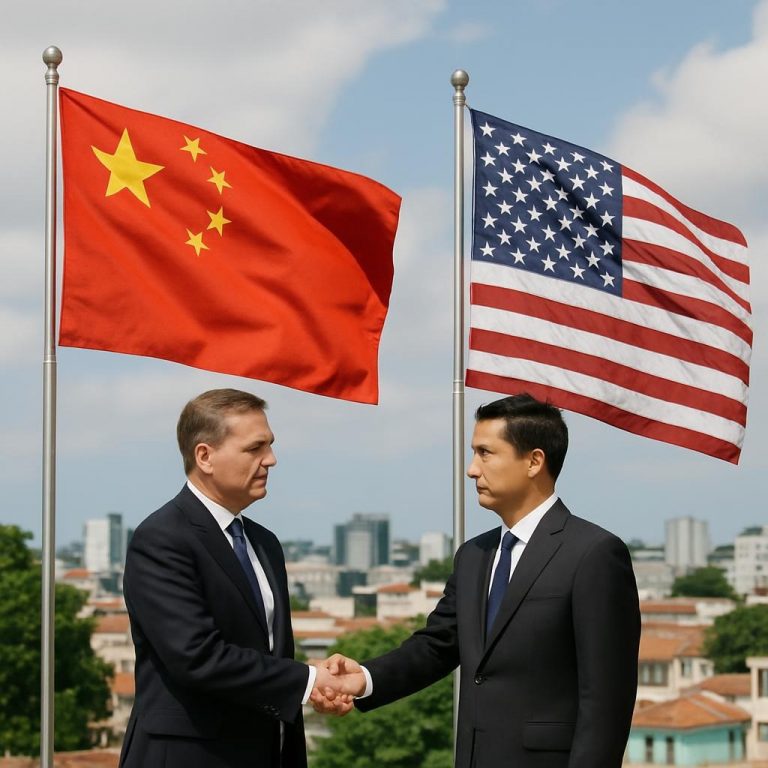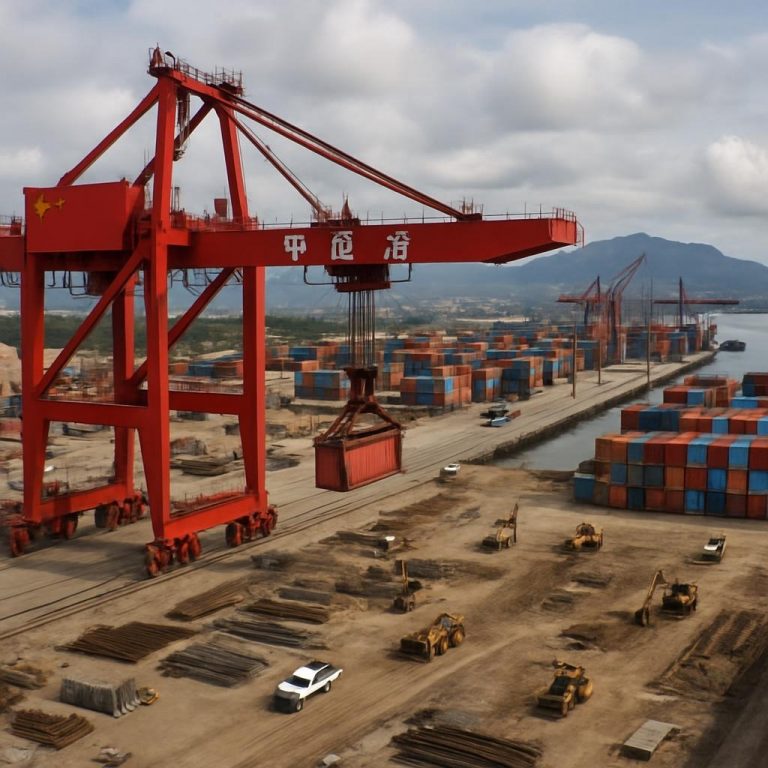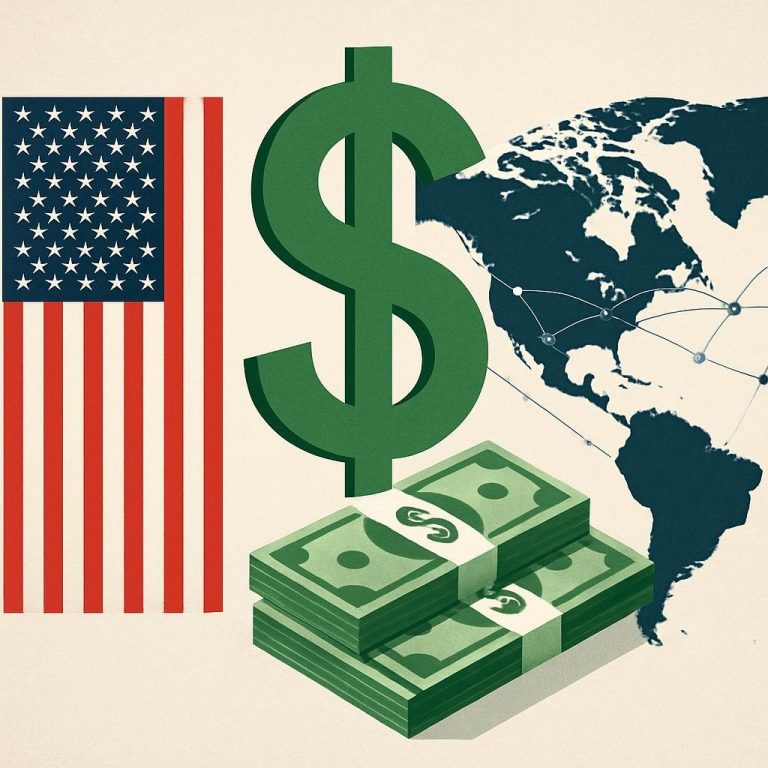
The Panama Canal is governed by the 1977 Torrijos–Carter Treaties, which transferred control to Panama in 1999 and guaranteed its neutrality. Any U.S. attempt to retake the canal would breach international law, provoke condemnation from Latin America, NATO, and the UN, and risk military escalation with adversaries like Russia and China. The canal’s strategic and economic importance makes its governance a flashpoint in global geopolitics.
🏛 Historical & Legal Context
- Treaties Governing the Canal: The Torrijos–Carter Treaties (1977) replaced the 1903 Hay–Bunau-Varilla Treaty, transferring control to Panama by 1999 and guaranteeing permanent neutrality.
Source Wikipedia - Impact of 1977 Treaties: These treaties ended U.S. sovereignty over the Canal Zone and phased out U.S. military presence, affirming Panama’s full control.
Source Office of the Historian - U.S. Attempts to Retake Control: President Trump has repeatedly threatened to “take back” the canal, citing toll disputes and Chinese influence, but no formal action has occurred.
Source DW - Legal Mechanisms Required: A seizure would violate the Neutrality Treaty and trigger international legal disputes, including Investor-State Dispute Settlement (ISDS) claims.
Source transnationalmatters.com - UN Response: Panama has already filed a complaint with the UN, citing violations of the UN Charter’s prohibition on force against sovereign nations.
Source Newsroom Panama
🌍 Geopolitical Implications
- Latin American Reaction: Countries across Latin America have rallied behind Panama, condemning U.S. threats as neocolonial aggression.
Source EL PAÍS English - China’s Influence: Chinese firms operate key ports near the canal. U.S. efforts to counter this influence have led to Panama exiting China’s Belt and Road Initiative.
Source Transatlantic Dialogue Center - Global Trade Role: The canal handles 5% of global trade and 40% of U.S. container traffic. Seizure would disrupt supply chains and raise shipping costs.
Source UNCTAD - NATO Allies’ Stance: Allies have expressed concern over unilateral U.S. action, urging respect for international treaties and Panama’s sovereignty.
Source Just Security - Russia’s Response: Russia warned the U.S. against violating Panama’s sovereignty and reaffirmed support for the canal’s neutrality.
Source POLITICO
🛡 Military & Strategic Considerations
- U.S. Military Capability: The Pentagon has developed options for canal control, but full seizure would require significant force and risk escalation.
Source NBC News - Strategic Value: The canal is vital for U.S. naval logistics, enabling rapid deployment between oceans and supporting global maritime dominance.
Source Sobel Network Shipping Co., Inc. - Panama’s Defense Capability: Panama lacks a standing army but has trained security forces. It would likely resist diplomatically, not militarily.
Source Tico Times - Monroe Doctrine Justification: Invoking the Monroe Doctrine would be legally dubious and diplomatically explosive, seen as outdated imperialism.
Source Carnegie Endowment for International Peace - Regional Conflict Risks: A takeover could destabilize Central America, provoke retaliation, and damage U.S. relations across the hemisphere.
Source Baker Institute
💰 Economic & Trade Impact
- Shipping Costs & Supply Chains: Seizure would reroute cargo, increase costs, and delay deliveries, especially for U.S. importers.
Source McKinsey & Company - Panama’s Economic Consequences: Loss of canal revenue would devastate Panama’s economy, which relies heavily on tolls and logistics.
Source faf.ae - U.S. Company Benefits: Some firms could gain from reduced tolls or direct control, but legal and diplomatic fallout would outweigh short-term gains.
Source Sobel Network Shipping Co., Inc. - Shipping Industry Response: Companies would likely oppose the move, fearing instability, sanctions, and disrupted logistics.
Source Wilson Center - Sanctions & Retaliation: A seizure could trigger trade retaliation, investor lawsuits, and sanctions from allies and global institutions.
Source transnationalmatters.com
🧠 Political & Public Opinion
- American Public Opinion: Most Americans oppose foreign wars. Experts say support for canal seizure is limited to fringe nationalist groups.
Source The Hill - Political Factions: Trump-aligned conservatives support the move; moderates and progressives condemn it as reckless and illegal.
Source TIME - Foreign Interference Justification: Claims of Chinese control are exaggerated. Panama retains full authority, and audits have found no violations.
Source Just Security - Panamanian Reaction: Citizens and leaders fiercely oppose U.S. intervention, citing national pride and historical struggle for sovereignty.
Source NBC News - Historical Precedents: U.S. intervention in Panama dates back to 1903 and the canal’s construction, often criticized as imperial overreach.
Source PBS
🎬 Documentary Recommendations
Here are acclaimed documentaries that explore the Panama Canal’s history, geopolitics, and global trade role:
| Title | Focus | Link |
|---|---|---|
| The Panama Deception | U.S. invasion of Panama (1989) | Watch on YouTube |
| Modern Marvels: Panama Canal | Engineering and construction | Watch on History Vault |
| Canal Dreams | Panamanian sovereignty and identity | Watch on PBS |
| China’s Global Reach | Belt and Road |





